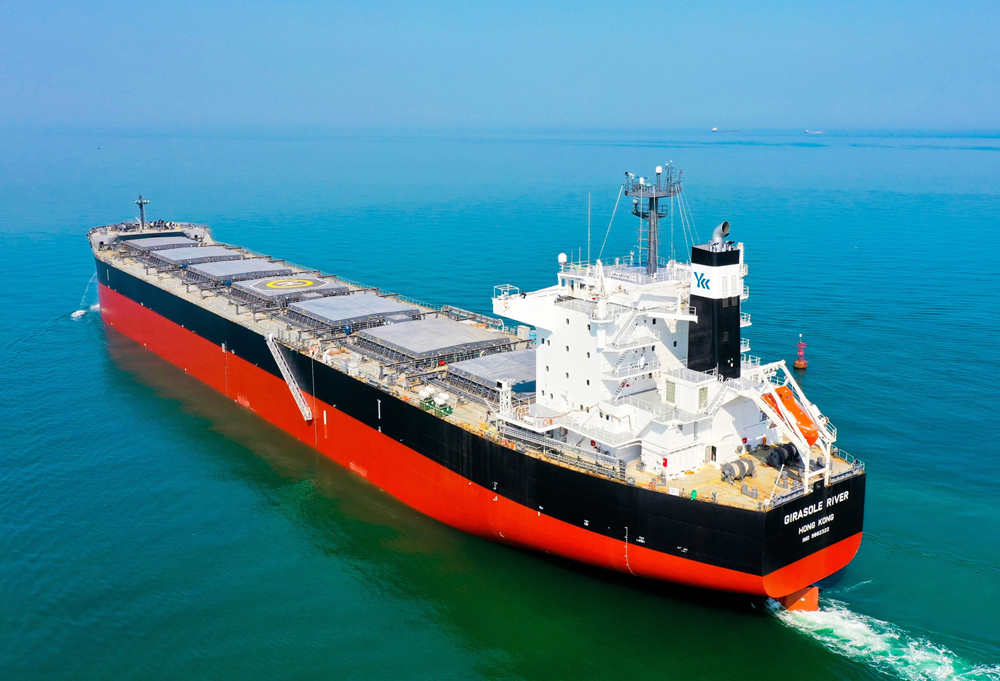Kawasaki Heavy Industries, Ltd. announced on Wednesday (Aug26) that it delivered the bulk carrier GIRASOLE RIVER.

The vessel is with a capacity of 81,000 DWT (Kawasaki hull No. 8057, DACKS hull No. DE077), built for EIGHT RIVER SHIPPING S.A. at the Dalian COSCO KHI Ship Engineering Co., Ltd. (DACKS), which is located in Dalian City, China and operated jointly with China COSCO Shipping Corporation Limited (China COSCO Shipping).
Delivery, principal particulars, and features of the vessel are as described below:
Principal Particulars
| Length overall | 228.90 m |
| Length between perpendiculars | 226.00 m |
| Molded breadth | 32.24 m |
| Molded depth | 20.20 m |
| Molded draft | 14.50 m |
| Gross tonnage | 44,020 |
| Deadweight | 81,982 t |
| Hold capacity | 97,745 m3 |
| Main engine | One set of MAN B&W 6S60ME-C8.5 diesel engine Maximum continuous output: 9,670 kW at 89 rpm |
| Speed | Approx. 14.2 knots |
| Complement | 25 people |
| Classification | Lloyd’s Register of Shipping (LR) |
| Country of registration | Hong Kong |
- The vessel has a flush deck with a forecastle and seven holds that are designed for optimum transport of grains, coal and ores.
- The vessel employs various technologies to achieve maximum fuel economy, including an energy-saving, electronically-controlled main diesel engine, a bow designed to reduce wave resistance, high propulsive efficiency propellers, and the Kawasaki rudder bulb system with fins (RBS-F) and semi-duct system with contra fins (SDS-F), which all contribute to the vessel’s enhanced propulsion performance.
- The vessel incorporates various energy saving technologies, which reduce both fuel consumption and emission of carbon dioxide (CO2), thereby complying with the EEDI* Phase 2 requirements.
* EEDI: Energy Efficiency Design Index . Compulsory international regulations requiring energy-efficiency compliance in newly built ships based on EEDI values, which specify CO2 emissions in grams for transporting one ton of cargo for one mile. EEDI regulation values apply in increasingly strict phases based on the construction-contract conclusion date and finished-ship delivery date. By Phase 1, bulk carriers are required to achieve a 10% reduction in CO2 emissions.